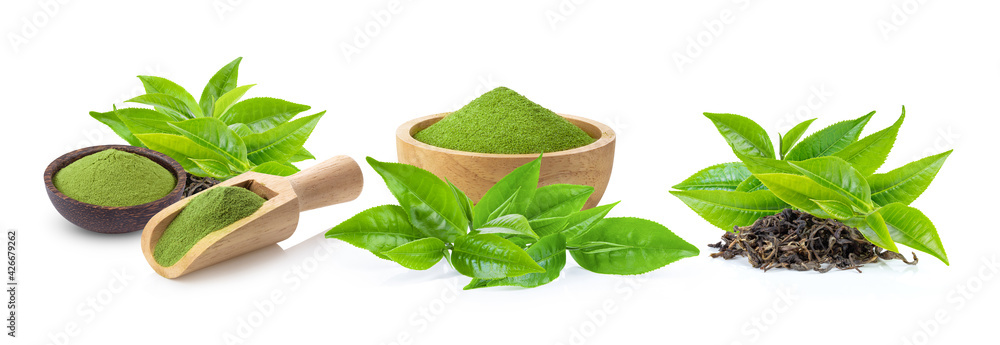 5اردیبهشت
5اردیبهشت
Tea introduction

The tea plant, scientifically known as Camellia sinensis, is an evergreen shrub native to East Asia, but cultivated all around the world in tropical and subtropical regions. The leaves, buds, and stems of this plant can be processed in different ways to produce a variety of teas, including black tea, green tea, white tea, oolong tea, and puerh tea. In today’s post we only pay attention to black and green tea, which are most common in the world, specially in Iran. In future, we dedicate more benefits or tips to different types of herbal tea.
Health Benefits of Green Tea
Green tea offers a myriad of potential health benefits, including protecting skin from inflammatory damage and potential anticancer benefits that positively affect skin health3,18. The impressive medicinal properties of green tea come from the polyphenol epigallocatechin-3-gallate (EGCG), having exceptional antioxidant properties and the ability to capture reactive carbonyl species, positioning it as a potent disease-preventing and alleviating agent3,18,21. There is a solid body of evidence linking green tea consumption with potential weight management benefits, derived from its high antioxidant content and beneficial polyphenols potentially reducing the risk factors for conditions such as cancer and heart disease3,18,23 . Moreover, some studies associate green tea consumption with a reduced risk of cancer, particularly when applied topically to protect the skin from UVB radiation and as potential chemopreventive and chemotherapeutic effects with emerging data showing promise in lowering cancer risks3,18,26. The anti-inflammatory, cholesterol-lowering, and blood-clotting reduction properties of green tea flavonoids make it vital for heart health3,19,20. Additionally, there's evidence that consuming green tea may have a beneficial role in regulating blood sugar levels, potentially reducing inflammation, and promoting brain health, inclusive of improved cognitive function and protection against Alzheimer's disease and dementia3,15 . Furthermore, green tea may have weight-loss benefits, although clinical importance remains inconclusive and requires a deeper investigation of studies carried out using high concentrations of catechins for added synergistic weight loss effects3,18,28. Only moderate consumption of green tea is advised as larger quantities may lead to side effects like insomnia, anxiety, and rapid heart rate due to its caffeine content, and more research is necessary to firmly establish certain health claims 3.

Potential Disadvantages of Green Tea
Despite the numerous health benefits associated with green tea, there are potential drawbacks to consider. Excessive green tea consumption may lead to caffeine sensitivity, resulting in symptoms like insomnia, anxiety, irritability, and nausea3. Furthermore, despite its potential positive effects, the caffeine in green tea, especially when taken in large amounts, might worsen diarrhea in some individuals with irritable bowel syndrome (IBS). Excess consumption has also been reported to cause stomach upset, constipation, liver and kidney issues, along with negative side effects such as anaemia, irritable bowel disease (IBD), and thyroid issues. Some studies suggest potential liver and kidney problems due to the caffeine content in green tea or green tea extracts, although more research is needed to confirm these claims (143). Similarly, doubts surrounding green tea have emerged due to its caffeine content, particularly as there are reports of its potential harm when consumed in excess.

Health Benefits of Black Tea
Likewise, black tea provides a range of health benefits, such as possessing antioxidants capable of protecting cells from oxidative damage and aiding in the promotion of heart and gut health3. The polyphenols and catechins found in black tea offer protection from inflammatory-based diseases, including cancer, reiterating its potential as a beneficial health-promoting beverage. Interestingly, the flavonoids abundant in black tea play a crucial role in elevating heart health by reducing bad cholesterol levels and blood clotting, hence lowering heart disease risks . Due to the antioxidants explicitly found in black tea, communities with high black tea consumption have shown lower rates of specific cancers, signaling the possible cancer risk reduction associated with regular black tea consumption3 (114).
Potential Disadvantages of Black Tea
Excessive black tea consumption, however, has potential drawbacks. Generally, safe for most people when ingested moderately, large amounts of black tea intake, exceeding four or five cups a day, may lead to caffeine-related health issues including anxiety, difficulty sleeping, nervousness, and restlessness. Moreover, high caffeine levels in black tea have the potential to cause severe problems when combined with other caffeine sources or supplements, possibly increasing blood pressure. Furthermore, black tea, or its supplements, could possibly interfere with certain medications and blood tests, causing undesirable interactions and potential complications. Lastly, it could inhibit iron absorption due to its tannic acid content, potentially contributing to kidney stones and esophageal cancer.
In conclusion, both green and black tea offer notable health benefits. However, it's crucial to consume them in moderation due to potential side effects related to their caffeine content and other bioactive components.
- 1- https://www.webmd.com/diet/health-benefits-green-tea
- 2- https://pubmed.ncbi.nlm.nih.gov/38611299/
- 3- https://www.medicalnewstoday.com/articles/269538
- 4- https://www.today.com/health/diet-fitness/green-tea-benefits-rcna141328
- 5- https://www.verywellhealth.com/green-tea-benefits-6951098
- 6- https://www.pennmedicine.org/updates/blogs/health-and-wellness/2019/december/health-benefits-of-tea
- 7- https://www.health.com/nutrition/benefits-green-tea
- 8- https://www.ncbi.nlm.nih.gov/pmc/articles/PMC4055352/
- 9- https://www.everydayhealth.com/diet-and-nutrition-pictures/life-sustaining-reasons-to-drink-green-tea.aspx
- 10- https://www.mountsinai.org/health-library/herb/green-tea
- 11- https://www.eatingwell.com/is-green-tea-good-for-you-8363574
- 12- https://www.bbcgoodfood.com/howto/guide/health-benefits-green-tea
- 13- https://www.quora.com/What-are-the-disadvantage-of-black-tea
- 14- https://www.eatingwell.com/article/8044312/is-tea-good-for-you/
- 15- https://www.ncbi.nlm.nih.gov/pmc/articles/PMC3821942/
- 16- https://health.clevelandclinic.org/black-tea-benefits
- 17- https://www.webmd.com/vitamins/ai/ingredientmono-997/black-tea
- 18- https://www.webmd.com/vitamins-and-supplements/black-tea-uses-and-risks
- 19- https://senchateabar.com/blogs/blog/black-tea-side-effects
- 20- https://pharmeasy.in/blog/ayurveda-uses-benefits-side-effects-of-black-tea/
- 21- https://www.webmd.com/vitamins/ai/ingredientmono-960/green-tea
- 22- https://www.healthifyme.com/blog/side-effects-of-green-tea/
- 23- https://www.quora.com/What-are-the-potential-negative-effects-of-daily-green-tea-consumption-When-is-the-optimal-time-to-drink-green-tea
- 24- https://longevity.technology/lifestyle/7-harmful-side-effects-of-excessive-consumption-of-green-tea/
- 25- https://pharmeasy.in/blog/ayurveda-uses-benefits-side-effects-of-green-tea/
- 26- https://www.urmc.rochester.edu/encyclopedia/content.aspx?contenttypeid=19&contentid=greenteaextract
- 27- https://www.quora.com/What-are-the-major-advantages-and-disadvantages-of-taking-green-tea
- 28- https://www.viconyteas.com/directory/tea-encyclopedia/disadantages-green-tea.html











